Introduction
Keto-friendly herbal bone broth electrolytes have become one of my favorite comfort rituals—especially on chilly mornings or during long stretches of clean eating. Ever since I started exploring the keto lifestyle, I’ve learned that staying hydrated and keeping my electrolytes balanced isn’t as easy as drinking water. That’s where this rich, nourishing broth has stepped in to save the day.
I first stumbled upon this idea while visiting a small village in the Atlas Mountains of Morocco. Locals there brewed herbal-infused broths from lamb bones and mountain herbs, sipping them like tea. The warmth, the depth of flavor, the subtle saltiness—it was everything I didn’t know I needed. And it turns out, this ancient practice fits beautifully into modern ketogenic diets. It laid the groundwork for what we now call keto-friendly herbal bone broth electrolytes—a natural blend of tradition and low-carb nutrition.
This article is packed with everything I’ve discovered—why this broth helps me feel stronger during intermittent fasting, how to make it at home, and what herbs can gently support your system. Whether you’re navigating keto flu or simply want a daily dose of mineral-rich goodness, I’ll walk you through it all.
Plus, I’ll answer common questions like: Does bone broth give you electrolytes? Can you get into ketosis with bone broth? and Why do some folks feel off after drinking it? If you’ve been wondering how to make keto-friendly herbal bone broth electrolytes your secret weapon for wellness and flavor, you’re in the right place.
Discover great ideas like how bone broth compares to other hydrating drinks in this overview of the coffee loophole diet.
Ready to warm up and recharge? Let’s start with what makes this humble drink so keto-friendly and electrolyte-rich.
Table of Contents
Health Benefits of Herbal Bone Broth Electrolytes
Why Electrolytes Are Essential on a Keto Diet
One of the first lessons I learned when transitioning to keto was this: you don’t just lose carbs—you lose electrolytes too. Every time I cut down on carbs, I noticed an odd mix of fatigue, headaches, and even brain fog. That’s where keto-friendly herbal bone broth electrolytes made a real difference in my routine.
This mineral-rich drink helps replace what’s lost during the early stages of ketosis, especially sodium, magnesium, and potassium. Unlike sugary electrolyte drinks or supplements with strange ingredients, broth is clean, real food. And when infused with herbs like parsley, turmeric, and ginger, it brings even more balance and comfort.
For me, a warm cup of keto-friendly herbal bone broth electrolytes first thing in the morning helped ease my transition into ketosis. It offered hydration, gentle flavor, and a way to start the day without breaking a fast. Plus, the herbs give it depth that plain broth just can’t match.
Traditional Herbal Uses in Bone Broth for Energy and Balance
Across cultures, broth isn’t just food—it’s a tradition. From Eastern European kitchens to North African hammams, herbal-infused broths have long been used to restore energy and soothe the body. When I traveled through Morocco, I watched elders add mint, bay leaf, and turmeric to long-simmered lamb bones. It wasn’t just about flavor—it was a ritual of nourishment.
Today, I carry that spirit into my own kitchen. Using fresh ginger, rosemary, and sea salt in my keto-friendly herbal bone broth electrolytes helps me feel more centered—especially on long workdays or low-energy afternoons.
These herbs don’t just add taste—they may support digestion, calm inflammation, and promote better hydration. While I never make health claims, I’ve felt a noticeable difference in clarity, warmth, and recovery when I include this broth daily.
Here’s why I keep a batch in my fridge:
- It keeps me hydrated and energized
- It’s gentle on the stomach during fasting
- It gives me a satisfying, low-carb option that aligns with keto goals
- It helps me unwind when paired with relaxing herbs like thyme or basil
If you’re searching for a way to feel more grounded during your keto days, I truly believe keto-friendly herbal bone broth electrolytes are worth trying. They’ve become a steady part of my lifestyle—and my favorite comfort drink.
The Science Behind Bone Broth and Ketosis
Can You Get Into Ketosis With Bone Broth? (PAA2)
This is one of the questions I had early on—and I hear it a lot from others starting keto: “Can bone broth help you get into ketosis?” While it won’t push your body into ketosis by itself, it absolutely supports the process—especially when fasting or easing into a low-carb routine.
During my early keto days, drinking a warm mug of keto-friendly herbal bone broth electrolytes became a daily habit. It kept me hydrated, helped ease keto flu symptoms, and offered gentle nourishment without breaking my fast.
Why it works so well:
- Bone broth is virtually carb-free
- It supplies amino acids and electrolytes without calories
- It soothes hunger during intermittent fasting
The comfort and function it delivers make it one of my favorite keto tools.
Looking for more low-sugar options that support digestion? Try pineapple water for a light, fruity hydration boost
The Role of Amino Acids and Fats in Supporting Ketosis
One of the reasons I rely on keto-friendly herbal bone broth electrolytes is the unique balance of protein and fat. When you simmer bones and connective tissues, they release compounds like glycine, glutamine, and proline—amino acids that help the body stay calm, recover faster, and support digestion.
From my own experience, here’s what stands out:
- Glycine helps me unwind before bed
- Collagen keeps me full between meals
- Natural fats give the broth a rich, comforting texture
I also use fresh herbs like ginger, rosemary, and a splash of lemon for added flavor and a wellness boost. It turns a simple cup of broth into a daily ritual I actually look forward to.
If you’re following keto and want something that hydrates, satisfies, and replenishes, keto-friendly herbal bone broth electrolytes might be the missing link in your routine.
Don’t miss this energizing lemon-based remedy: Whole lemon olive oil drink—another way to support hydration naturally
Print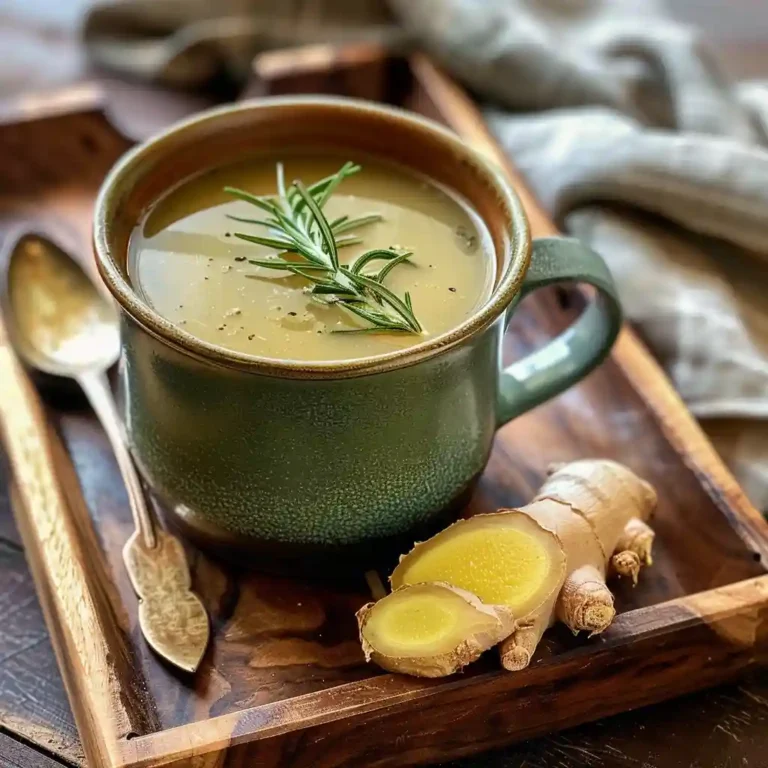
Keto-Friendly Herbal Bone Broth Electrolytes: The Daily Keto Ritual I Swear By
A nourishing keto staple inspired by Moroccan mountain broths, this herbal bone broth is rich in electrolytes and comforting warmth.
- Total Time: 24 hours 15 minutes
- Yield: 8 cups 1x
Ingredients
- 2–3 lbs grass-fed beef bones or organic chicken carcasses (marrow bones or joints)
- 1 tablespoon apple cider vinegar
- 2 teaspoons Himalayan pink salt
- 1 large thumb of fresh ginger, sliced
- 1 tablespoon dried turmeric or 1-inch fresh root
- 1 handful fresh parsley
- 2 bay leaves
- 1 sprig rosemary or thyme
- 1 tablespoon lemon juice or peel (optional)
- Filtered water (to cover bones)
- Optional: celery stalks or zucchini (for potassium)
- Optional: 1 tsp MCT oil or spoonful of ghee added post-simmer
Instructions
- Optional: Roast bones at 400°F (200°C) for 25–30 minutes for richer flavor.
- Add bones, herbs, vinegar, and salt to a large pot or slow cooker. Cover with water by 2 inches.
- Simmer low and slow:
- Stovetop: 12–24 hours
- Slow cooker: 24–36 hours
- Instant Pot: 2–3 hours (Soup/Broth setting)
- Strain solids with a fine mesh sieve. Pour broth into glass jars. Chill and optionally skim fat.
- Reheat gently to drink or use in cooking. Optionally, add lemon or more salt to taste.
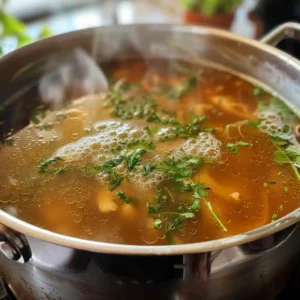
Notes
Use a variety of herbs and bone types for nutritional balance. Adjust simmer time based on tolerance and flavor preference.
- Prep Time: 15 minutes
- Cook Time: 24 hours
- Category: Wellness Drink
- Method: Slow Simmer
- Cuisine: Keto Fusion
Nutrition
- Serving Size: 1 cup
- Calories: 60
- Sugar: 0g
- Sodium: 550mg
- Fat: 3g
- Saturated Fat: 1g
- Unsaturated Fat: 2g
- Trans Fat: 0g
- Carbohydrates: 1g
- Fiber: 0g
- Protein: 7g
- Cholesterol: 15mg
How to Make Keto-friendly herbal bone broth electrolytes at Home
Ingredients That Deliver Natural Electrolytes
Making keto-friendly herbal bone broth electrolytes at home is easier than most people think—and far more satisfying than anything store-bought. I love knowing exactly what’s going in, from clean bones to fresh herbs, and skipping additives I don’t need.
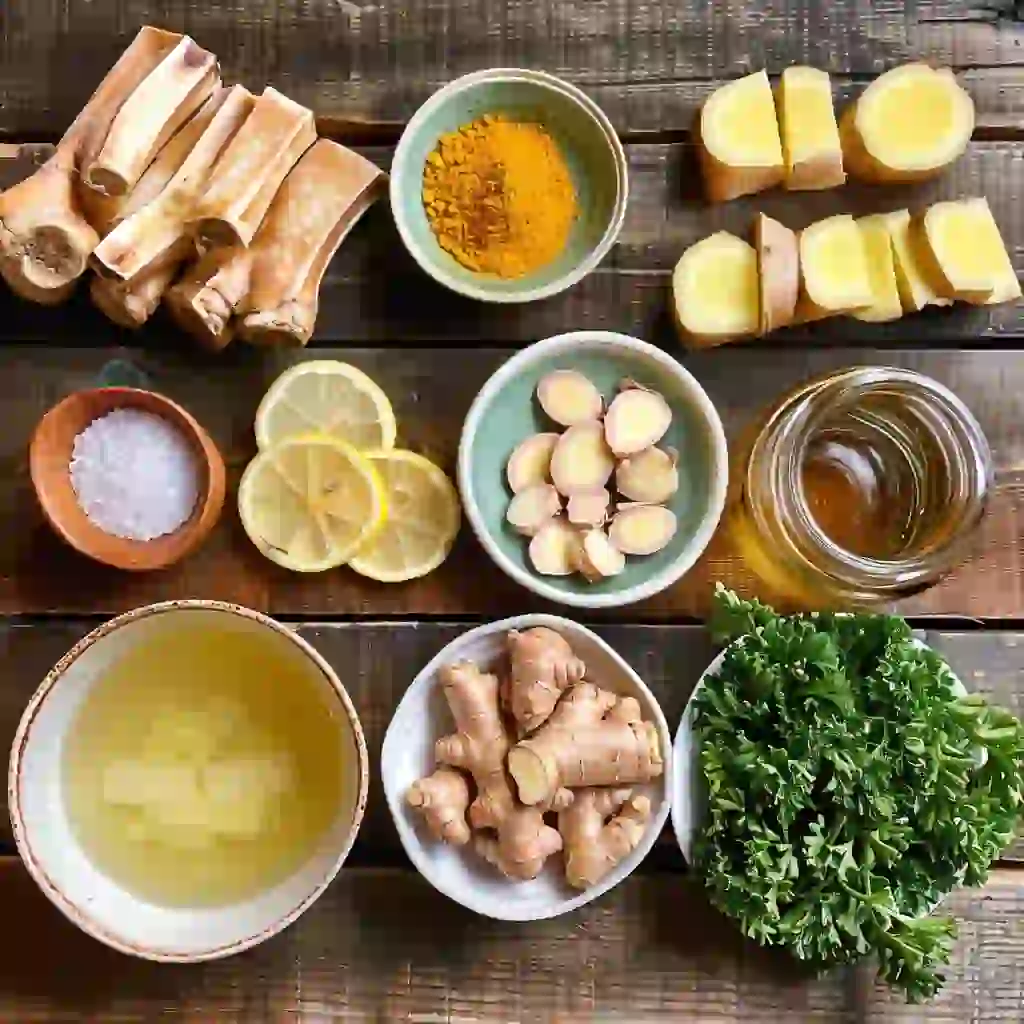
Here’s what I usually keep on hand:
- Grass-fed beef bones or organic chicken carcasses
- Apple cider vinegar (for mineral extraction)
- Himalayan pink salt
- Fresh ginger, turmeric, parsley, bay leaf
- Optional add-ins: rosemary, lemon peel, MCT oil, or ghee
Together, these ingredients create a mineral-rich base that supports hydration, especially during keto.
Simple Method for Deep Flavor
I follow this process to make my batch:
- Roast bones (optional, for flavor)
- Add bones, herbs, and salt to a pot
- Fill with water and simmer for 12–24 hours
- Strain and store in jars
- Reheat and enjoy as a warm drink or soup base
The result is a broth that gels beautifully when chilled and delivers real nourishment. I often sip a cup mid-morning or use it to break a fast. The richness and subtle herbal notes make keto-friendly herbal bone broth electrolytes something I crave regularly.
Why I Make It Weekly
Whether I’m prepping for the week or recovering from a long day, this broth is my wellness anchor. It helps replace electrolytes naturally and gives me a low-carb, satisfying option between meals.
Sometimes I even pour it into a thermos for on-the-go comfort. And when I need a quick dinner base? It’s right there, ready to go.
If you’re following keto, keto-friendly herbal bone broth electrolytes are an easy, nourishing staple you’ll want in your fridge at all times. Warm, restorative, and full of tradition—it’s the kind of recipe that becomes part of your life.
Discover this powerful homemade metabolism booster: Natural Mounjaro weight loss drink—a great pair with broth during your routine.
Daily Use and Safe Consumption of Bone Broth
What Happens If I Drink Bone Broth Every Day? (PAA3)
This is something I’ve experienced firsthand: I started drinking keto-friendly herbal bone broth electrolytes every single morning—and sometimes even at night. The result? I felt more stable, less bloated, and surprisingly satisfied between meals. But is it safe to sip every day?
From my perspective, the answer is yes—as long as you keep it balanced. Drinking bone broth daily has helped me:
- Stay hydrated, especially during fasting
- Replenish sodium and potassium after long walks or workouts
- Avoid snacking, thanks to its richness and warmth
Still, I noticed something important. When I overdid it—multiple mugs a day for weeks—I started feeling off. Too full. Puffy. Low appetite.
So here’s what works better for me now:
- One 8–12 oz mug daily is my sweet spot
- I skip days when I eat plenty of other proteins
- I rotate herbs and bones to vary the nutritional profile
Whether I’m fasting or just need comfort, keto-friendly herbal bone broth electrolytes give me a cozy, mineral-rich reset without the crash.
Signs You May Be Overdoing Bone Broth on Keto
Although it’s nourishing, too much of anything can throw your body off. When I was in my “honeymoon phase” with bone broth, I drank up to 3 mugs daily for a month. Here’s what I noticed:
- Sodium overload: Paired with salty meals, it left me feeling bloated
- Protein imbalance: It’s rich in glycine but lacks the full amino acid profile
- Store-bought shortcuts: Some contain MSG, sugar, or “natural flavoring”—even with keto on the label
If you’re experiencing puffiness, fatigue, or digestion issues, consider scaling back. I also recommend switching between beef and chicken bone bases for balance.
Now, I always keep keto-friendly herbal bone broth electrolytes in the fridge—usually a beef batch and a lighter herbal chicken version. I use them as pre-lunch sippers, bedtime soothers, or fast-day fillers.
My Daily Bone Broth Rules
Here’s my go-to checklist to stay balanced:
- Stick to one mug per day
- Pair with meals—not as a sole protein
- Avoid overly salted or packaged versions
- Rotate ingredients every batch
Keto-friendly herbal bone broth electrolytes aren’t just fuel—they’re part of my rhythm now. With intention and moderation, they’ve helped me feel stronger, clearer, and more in tune with my body.
Side Effects and What to Watch Out For
Why Do I Feel Weird After Drinking Bone Broth? (PAA4)
I’ve had a few moments—especially early on—where I sipped a hot mug of keto-friendly herbal bone broth electrolytes, expecting to feel better… but instead, I felt a little off. Nausea. Lightheadedness. A weird fog. At first, I thought something was wrong with me—but it turns out, bone broth affects everyone a bit differently.
Here are a few reasons you might feel “off” after drinking it—and what I’ve learned along the way:
- Too much sodium too fast: On keto, your body flushes out water, so heavily salted broth can lead to a sudden electrolyte spike. I once added pink salt and soy sauce—big mistake. It left me dizzy.
- Natural glutamates: Long-simmered bones release glutamic acid, which can trigger headaches or fog in some folks.
- Histamine sensitivity: If you’re histamine-sensitive (I didn’t know I was for years), high levels from slow-cooked broths may cause flushing, itching, or anxiety.
- Fat overload: Broths with heavy fat caps or added MCT oil can overwhelm digestion, especially if sipped on an empty stomach.
Now, I approach my routine more mindfully:
- Keep keto-friendly herbal bone broth electrolytes simple when breaking a fast
- Sip slowly, starting with a few sips
- Strain, cool, and skim excess fat before storing
- Switch to lemon water or tea if anything feels off
How to Troubleshoot Digestive Reactions and Sensitivities
When I feel something’s not quite right after sipping broth, here’s my go-to protocol:
- Check the batch: Did I use a new herb, bone source, or vinegar? Even small changes can trigger sensitivities.
- Shorten simmer time: For gentler batches, I now simmer keto-friendly herbal bone broth electrolytes for 6–8 hours rather than 24 when I want something lighter.
- Go low and slow: I space out intake across the day and always drink water alongside.
- Rotate ingredients: I alternate between basil, parsley, thyme, and other herbs to avoid overdoing any one compound.
This has helped me keep the benefits while reducing side effects. And I’ve learned to listen to my body—especially when I change bones or adjust fat content.
When made mindfully, keto-friendly herbal bone broth electrolytes still remain one of my favorite keto staples. But it’s not one-size-fits-all. Sensitivity happens, and knowing how to troubleshoot makes a big difference.
Here’s a little mini guide I created for myself:
| Symptom | Likely Cause | Quick Fix |
|---|---|---|
| Headache/Fog | Too much glutamate | Reduce simmer time |
| Itching/Flushing | Histamine overload | Switch to fresh batch or herbal tea |
| Nausea/Fullness | Too much fat or salt | Skim fat, hydrate more, eat lighter |
Check out our hydration timing tips in this helpful guide to Watertok drinks.
Best Herbs and Add-ins for Electrolyte Support
Top Herbal Picks: Ginger, Turmeric, Parsley & More
One of the best parts about crafting keto-friendly herbal bone broth electrolytes is the flexibility. I like to think of broth as a blank canvas—ready to be infused with herbs that not only add depth of flavor but may gently support hydration, digestion, and mental clarity.
Here are my personal favorites that I rotate through my broth batches:
- Ginger: I add a few fresh slices to almost every batch. It gives a warm, slightly spicy note and has long been used in traditional kitchens to support digestion and circulation.
- Turmeric: Whether fresh root or powdered, this golden gem adds earthiness and color. I usually pair it with black pepper to help bring out its properties.
- Parsley: When added toward the end of the simmer, parsley brings a fresh finish and a dose of potassium—a mineral keto folks often fall short on.
- Bay leaf: Subtle but grounding. A single bay leaf simmered in broth brings a comforting aroma I now associate with my own wellness.
- Rosemary or thyme: These Mediterranean classics deliver an herbaceous edge. I like them especially in lamb or beef broth.
- Lemongrass or mint (in summer batches): These add brightness and can help freshen the flavor, especially when sipping broth cold.
These herbs not only elevate the taste of keto-friendly herbal bone broth electrolytes but also carry cultural significance. From Moroccan hammam kitchens to Eastern European soups, they’ve seasoned healing broths for generations.
Pairing Bone Broth with Apple Cider Vinegar, Lemon, and Salt
Beyond herbs, I also love incorporating acidic and salty elements that help draw out minerals and balance flavors:
- Apple cider vinegar (ACV): I add 1–2 tablespoons to the pot before simmering. It gently helps extract calcium and magnesium from the bones.
- Fresh lemon juice or peel: I sometimes toss in a strip of peel or add juice after reheating a portion. It brightens the broth and supports digestion.
- Pink Himalayan salt: This is my go-to for sodium. It contains trace minerals like magnesium, calcium, and iron. I adjust the amount based on taste and how “depleted” I feel that day.
- Seaweed (kombu): When I want a mineral-heavy broth, I’ll throw in a strip of dried kombu during the first hour. It’s naturally rich in iodine and potassium.
I keep a mix of these add-ins on hand so I can tweak my keto-friendly herbal bone broth electrolytes depending on the season, my cravings, or how my body’s feeling.
These little tweaks have helped me craft versions that are energizing, calming, or restorative—whatever I need that day. Whether it’s a ginger-turmeric blend in the winter or a minty broth in July, my routine stays fresh and functional.
If you’re new to customizing your batch, don’t worry. Start with a simple blend and build your way up. Over time, your version of keto-friendly herbal bone broth electrolytes will reflect your taste, your rhythm, and your wellness goals.
Comparing Store-Bought vs Homemade Electrolyte Bone Broth
Do Store-Bought Versions Contain Enough Electrolytes?
There was a time when I relied on store-bought bone broth—mostly out of convenience. I’d grab a carton labeled “keto” or “collagen-rich” and hope for the best. But over time, I realized not all broths are created equal—especially when it comes to electrolyte content.
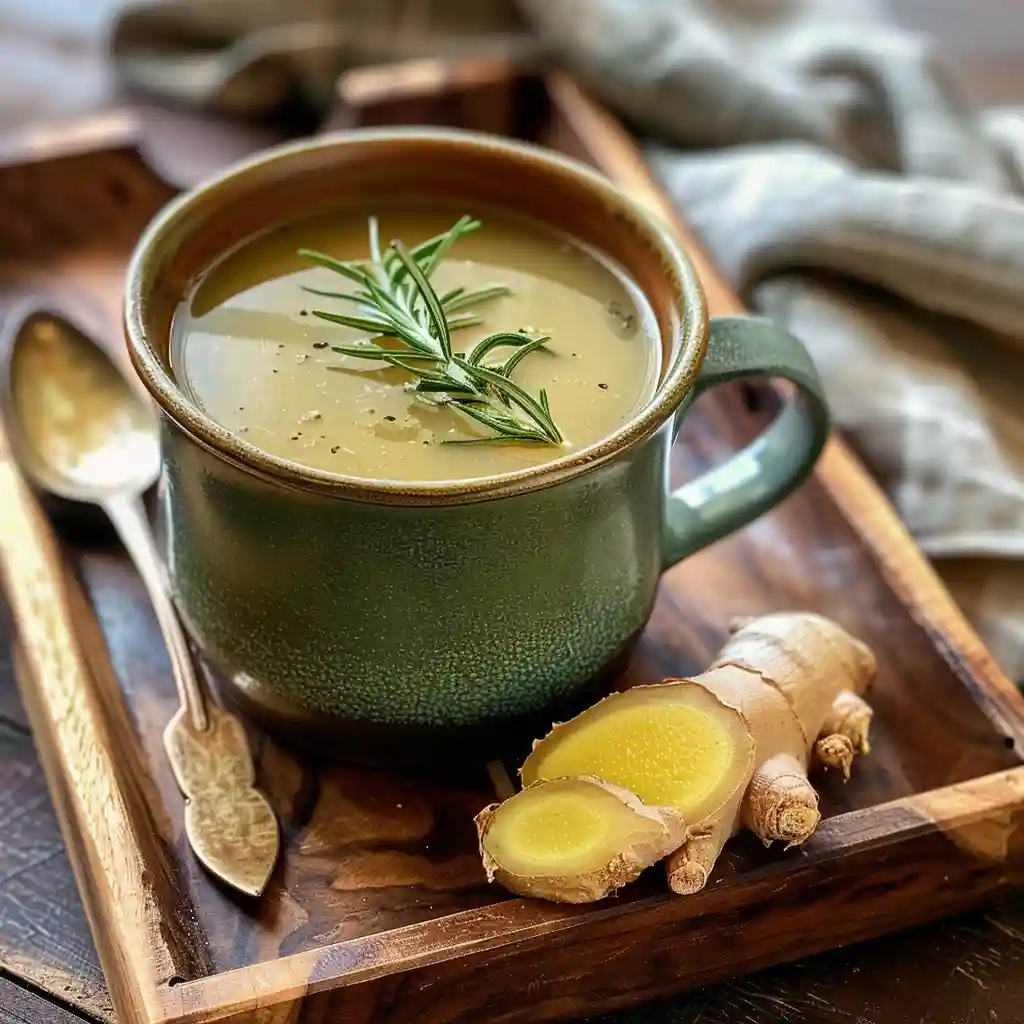
If you’re hoping to use keto-friendly herbal bone broth electrolytes as a daily hydration or recovery tool, then quality matters a lot more than the packaging.
Here’s what I noticed from reading labels and taste-testing dozens of brands:
- Many cartons were watered down, with just a faint bone taste and very little natural fat or gelatin.
- Sodium content varied wildly—some had only 90 mg of sodium per cup, while others packed 500+ mg.
- Herbs were rare. Most store-bought versions skipped the ginger, parsley, or ACV I count on for my electrolyte blend.
- A few “healthy” options contained yeast extract or “natural flavors,” which didn’t sit well with me.
- The best store-bought brands came frozen or in glass jars—but those weren’t cheap.
If you’re choosing store-bought, here’s what I look for:
- 10g+ protein per serving (suggests real bone extraction)
- 250–500mg sodium per cup
- No sugar, MSG, or yeast extract
- Visible fat layer when chilled (a good sign it’s rich and whole)
Even then, nothing compares to the texture, mineral content, and clean flavor of homemade keto-friendly herbal bone broth electrolytes. When I make my own, I can add herbs that align with how I feel that week—cooling in summer, grounding in winter—and tailor the salt to fit my needs.
What to Look for on Ingredient Labels When Buying
If I’m traveling or too busy to simmer my own broth, I’ll reach for a quality jar—but I’ve learned to read the label like a detective. Here’s what I scan for when sourcing keto-friendly herbal bone broth electrolytes at the store:
✅ Choose if the label says:
- “Slow-simmered for 12+ hours”
- “Grass-fed bones” or “organic chicken bones”
- “No added sugar” or “no artificial ingredients”
- Herbs listed clearly (e.g., ginger, turmeric, rosemary)
- ACV or lemon juice included
❌ Avoid if the label says:
- “Natural flavoring” or “yeast extract”
- “Chicken flavor” instead of real bones
- Less than 1g protein per serving
- Ultra-pasteurized (usually shelf-stable and less nutrient-dense)
Here’s a simple chart I keep in mind:
| Feature | Homemade | Store-Bought |
|---|---|---|
| Flavor & Depth | Rich, customizable | Often thin, limited |
| Electrolyte Control | Full control | Inconsistent |
| Cost per Cup | Very affordable | Can be expensive |
So while store-bought versions can help in a pinch, I always return to homemade keto-friendly herbal bone broth electrolytes when I want consistent results. From flavor to nutrients, nothing beats knowing exactly what’s in my cup.
Best Times and Ways to Enjoy Bone Broth on Keto
Morning vs Evening Consumption—What Works Best?
When it comes to keto-friendly herbal bone broth electrolytes, timing can make all the difference in how you feel. I’ve experimented with sipping it first thing in the morning, mid-afternoon, and even as a nightcap. Each time offers something different, and it really depends on what your body needs that day.
Here’s how I use it throughout my keto lifestyle:
- Morning (especially while fasting): One mug of hot broth with lemon and pink salt helps calm early hunger and replaces electrolytes lost overnight. I often feel more focused and less jittery than when I start with coffee.
- Afternoon slump: If I hit a mid-day energy dip (especially after a low-carb lunch), a light broth with ginger gives me a lift without triggering cravings.
- Evening wind-down: Broth before bed—especially one simmered with turmeric or chamomile—soothes my digestion and promotes restful sleep.
There’s no wrong time to enjoy keto-friendly herbal bone broth electrolytes. It’s about tuning into your energy, cravings, and digestive rhythm.
Creative Ways to Use Bone Broth in Keto Meals
While sipping broth is my go-to, I’ve also found tasty and surprising ways to use it in cooking. If you’re bored of plain mugs, here are my favorite keto-friendly uses:
- Broth-based soups: Zucchini noodle pho or creamy cauliflower chowder made with herbal broth
- Poaching liquid: I poach eggs or chicken thighs in broth for added flavor and protein
- Cauliflower mash: Use broth instead of cream for a lighter, more mineral-rich mash
- Bone broth ice cubes: Freeze broth into cubes, then add to sautéed greens or stir-fries for quick flavor
- “Fat coffee” alternative: Blend a hot cup of broth with MCT oil, ghee, or butter—it’s frothy, savory, and deeply satisfying
Broth is now part of my keto-friendly herbal bone broth electrolytes meal prep routine. I batch it on Sundays, freeze in jars, and keep a bottle thawing in the fridge for the week ahead.
Here’s the simple rotation I follow based on mood and season:
- Monday: Ginger + parsley for calm energy
- Wednesday: Lemon + turmeric for immune support
- Friday: Rosemary + garlic for deep comfort
This variety helps keep keto-friendly herbal bone broth electrolytes from ever feeling boring—and gives me the flexibility to make it energizing, soothing, or satisfying depending on the day.
Want more ideas for gut-friendly, DIY drinks? Explore this fermented probiotic lemonade guide
So whether it’s a fast-breaker or an evening ritual, keto-friendly herbal bone broth electrolytes offer more than nutrition—they’ve become one of the most grounding parts of my keto lifestyle.
FAQs About Keto-friendly herbal bone broth electrolytes
Does bone broth give you electrolytes?
Yes, bone broth may naturally provide key electrolytes like sodium, potassium, calcium, and magnesium, especially when made with bones rich in connective tissue and simmered with mineral-drawing ingredients like apple cider vinegar and sea salt. From my own kitchen, I’ve noticed that keto-friendly herbal bone broth electrolytes made at home tend to offer a richer mineral profile than most commercial options.
To further boost electrolyte content, I often add ingredients like parsley, spinach, or kelp to the pot for natural potassium and magnesium. These small additions can make a big difference in how replenishing your broth feels—especially on active or fasting days.
Can you get into ketosis with bone broth?
Bone broth alone won’t cause ketosis, but it absolutely supports the transition. It’s low in carbs, rich in amino acids, and hydrating—all important during the early days of keto when the body is flushing water and electrolytes.
Personally, I’ve found keto-friendly herbal bone broth electrolytes incredibly helpful during intermittent fasting and extended fasts. They help reduce keto flu symptoms, provide gentle nourishment, and curb hunger without kicking you out of ketosis.
What happens if I drink bone broth every day?
From my experience, drinking keto-friendly herbal bone broth electrolytes daily can feel deeply nourishing—especially when I’m eating clean or recovering from intense workouts. It supports hydration, delivers collagen and minerals, and satisfies me between meals.
That said, moderation matters. I’ve learned that 1–2 cups a day is plenty. Drinking too much or using broth as a meal replacement for too long might throw off your sodium or protein balance. Always listen to your body, and if you notice bloating or fatigue, it may be time to scale back or rotate your herbs and ingredients.
Why do I feel weird after drinking bone broth?
If you feel foggy, flushed, or nauseous after sipping keto-friendly herbal bone broth electrolytes, a few factors could be at play:
Too much sodium can cause dizziness—especially if you’re also salting other foods
Glutamate sensitivity from long-simmered bones may trigger brain fog
Histamine buildup in aged or overcooked broth might cause anxiety or itching
When that happens to me, I switch to a shorter simmer time, strain extra fat, and use fresh bones. I also pair my broth with plain water to stay balanced. Every body is different—so be flexible and adjust until you find your sweet spot.
Add this detox staple to your meal prep rotation: Internal shower chia seed water—a soothing complement to your broth
Conclusion: My Experience with Herbal Bone Broth on Keto
Over the past few years, keto-friendly herbal bone broth electrolytes have become more than just a wellness trend in my life—they’ve become a grounding ritual. Whether I’m sipping it to support hydration during fasting or using it as a base for quick keto meals, this mineral-rich blend feels like home in a cup.
There’s something deeply personal about making your own keto-friendly herbal bone broth electrolytes. The simmering herbs, the savory aroma in the kitchen, the act of choosing what goes in—it’s calming, creative, and always satisfying. I’ve learned through trial (and a few errors) how to craft a broth that truly fits my body: adjusting herbs, managing salt, and rotating bones. It’s not about perfection. It’s about listening—to your energy, your digestion, and your mood.
If you’re navigating the ups and downs of keto, I truly believe a warm mug of keto-friendly herbal bone broth electrolytes can offer both comfort and function. It’s helped me feel more stable during intermittent fasting, more hydrated on active days, and more in tune with what my body actually needs.
I also love how versatile this recipe has become in my kitchen. Some days I keep it simple with rosemary and pink salt. Other days I mix in turmeric, ginger, or lemon peel for an immune-supporting twist. No matter the blend, keto-friendly herbal bone broth electrolytes have become one of my most dependable, nourishing tools on this low-carb journey.
And if you want to see more cozy kitchen creations and real-life behind-the-scenes of my food journey, you can follow me here:
🔗 Connect on Facebook
🔗 Follow on Pinterest
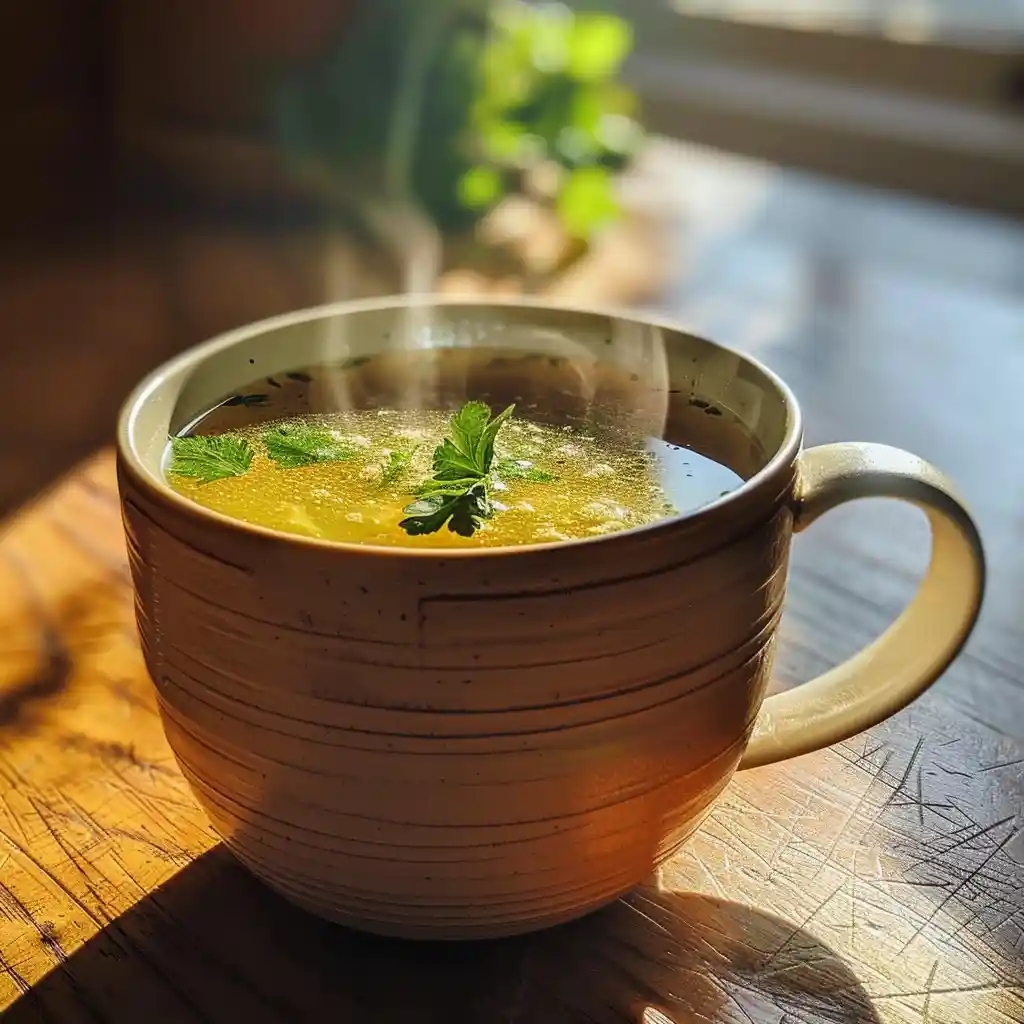
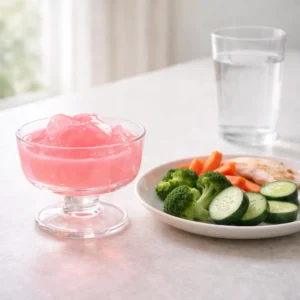
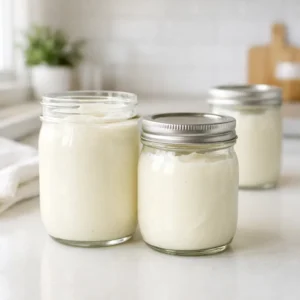
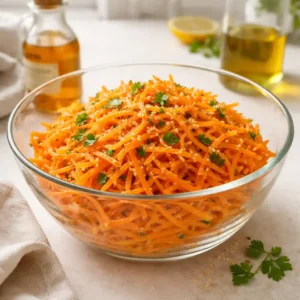




1 thought on “Keto-Friendly Herbal Bone Broth Electrolytes: The Daily Keto Ritual I Swear By”